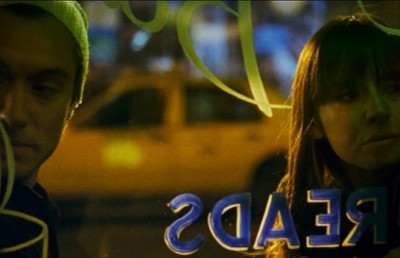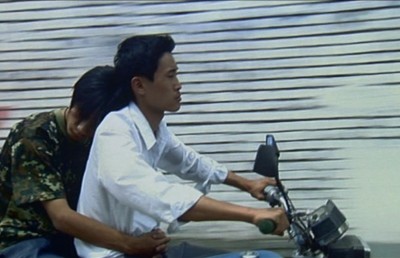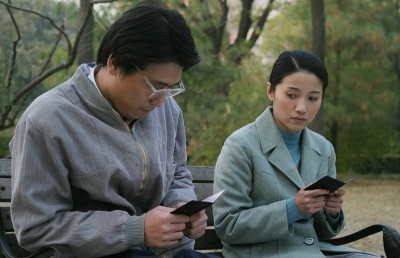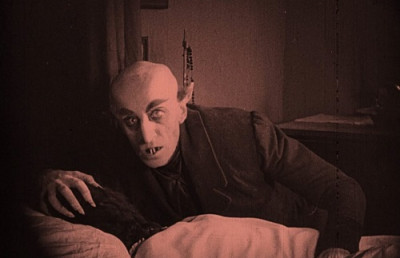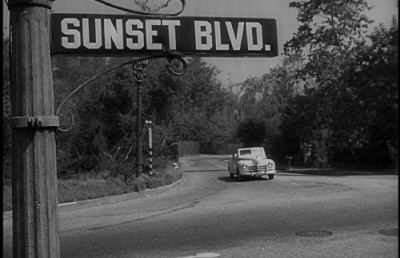What is Morality? On Oldboy
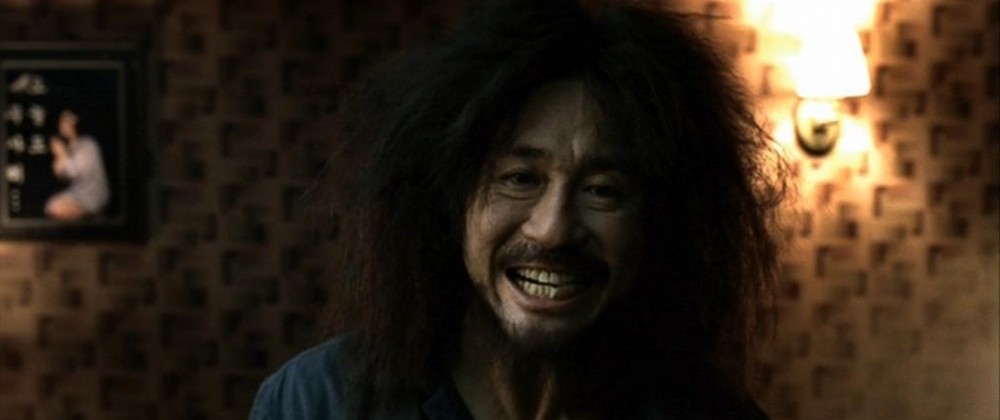
Park Chan-wook insists that his films have an ethical point. [1] Of course the claim is widely contested, if not ridiculed, for the films are rife with violence and immorality. For instance, Oldboy (2003) seems to justify incest as the film ends with the protagonist’s amorous union with his daughter, with the two not knowing their relationship.
Still, the fact that a film does not overtly condemn its character’s immoral actions does not mean that it approves of the actions. It is common for a film to refrain from taking a particular moral position, even when it is dealing with an immoral or evil character, and we often concur with the attitude. But this position is rather peculiar on the face of it; when an immoral conduct is being shown, how can we be nonjudgmental about it? If an action that everyone judges as immoral is performed, such as incest, then how can there be any possible response other than condemnation?
On reflection, however, the attitude is not as contradictory as it may first appear. Consider the possibility where a mitigating condition prevents one from acting morally; for a classic example, suppose my friend gave me a gun and told me to hold onto it. A few days later, he tells me he wants to kill himself with it and demands to get his gun back. Is it moral for me to give back to him what is rightly his? [2]
In the above conflict, the problem cannot be about what a moral conduct is: it cannot be about whether it is morally right or wrong to return to its owner what is his, or to protect a person’s life. Rather, the moral rightness of both actions must be presupposed in order for the conflict to even arise, given that the conflict is between different moral imperatives, not between morality and immorality. In fact, a moral conflict would not be much of a serious conflict if morality were something we could simply detach from human conduct and understanding at will. [3]
What sense can we make out of the notion that we should be nonjudgmental about others’ wrongdoings? One common view is that we should be nonjudgmental about others because morality is something arbitrary, in relation to particular individuals, cultures and social conditions, and there is no such thing as an intrinsic right or wrong. On this view, morality, at bottom, is like a set of external or social constraints on human behavior.
Of course, it is easy to see on reflection that this view, like all relativisms, is incoherent, given that when a certain moral judgment is seen as relative according to different contexts, moral notions themselves cannot be made relative, such as right and wrong. Indeed, if right and wrong themselves are relative, the notions cannot even be made intelligible.
But it is also understandable why a view of this sort, that morality is, at bottom, a deeply subjective matter, holds conviction. In some moral conflicts, seeing what should be done is wholly unproblematic: in fact, one probably should not return a gun to its owner even if he is in a sound frame of mind and should convince him to get rid of it (one might even say that the above conflict is not a genuine one). But in others, there is no clear answer as to what the right action is, not because there is no such thing as right or wrong, but because mitigating conditions are such that doing wrong is inescapable regardless of the choice that one makes. [4]
And there is a profound difference between moral thinking about others’ actions and about one’s own conduct: when one looks at other people’s wrongdoings, it often inspires a sense of misanthropy or sanctimoniousness about one’s own humanity. Of course, other people do not unconditionally deserve to be sympathized with at all times, but what is clear is how the world looks to a person as a spectator is entirely different from as an agent who is forced to act in the world.
How do all these notions relate to Oldboy? First of all, unlike the other films in Park’s so-called “Vengeance Trilogy,” Sympathy for Mr. Vengeance (2002) and Sympathy for Lady Vengeance (2005), the film’s point does not lend itself easily to a slogan, such as ‘cycles of revenge are futile,’ or ‘revenge cannot be redemptive’ (and such), nor is it clear whether it has a moral point to make, given that its moral seems to be delivered by the villain who does more evil than anyone else in the film.
Of course, we can be cynical and doubt that it has any meaning, but if we can be charitable enough to give the filmmaker the benefit of the doubt, Oldboy tells the story of a man called Oh Dae-su (Choi Min-sik), who, out of the blue and without reason, is kidnapped and incarcerated for 15 years. After being framed for his wife’s murder and his life destroyed, Oh, naturally, seeks the reason for his imprisonment and vows revenge. After he gets released, also unexpectedly, he is goaded and taunted by the unknown villain into finding out why the villain did what he did. Along the way, he befriends a young woman, Mi-do (Kang Hye-jeong), who helps him with the task.
As it turns out, the villain is someone called Lee Woo-jin (Yu Ji-tae), who attended the same high school as Oh. Lee’s actions are caused by his desire to avenge an act which he believes was caused by Oh. When both were schoolboys, Lee’s sister, Soo-ah (Yun Jin-seo), with whom he had an incestuous relationship, killed herself and Lee blames the death on a rumor that Oh had spread. In order to get back at Oh, he has plotted Oh to unknowingly commit the very same transgression that he has committed, namely, incest, as it is revealed at the end of the film that Mi-do, whom Oh sleeps with during the course of the film, is in fact his daughter reared by Lee, unbeknownst to Oh (we were told at an earlier point in the film that she was adopted into an overseas family).
Oh, realizing what he has done, begs Lee to not reveal to Mi-do the nature of their relationship. After Oh cuts off his own tongue as an acknowledgement of his guilt, Lee eventually allows the secret to remain hidden. Having succeeded in his revenge, Lee kills himself, perhaps finding despair rather than satisfaction, and at the end of the film, Oh asks a hypnotist (Lee Seung-shin), who meets him several times during the film, [5] to erase the knowledge of the secret from his mind. The film ends with Oh being reunited with Mi-do, and it is not made certain whether or not he still has the knowledge.
The film can be understood as a parable about knowledge (and more specifically, self-knowledge), or a variation on the Oedipal or Faustian myth, since the success of the villain’s scheme is based on Oh’s being allowed (and indeed, forced) to discover what he wants to know. Oh does not realize that his very actions and ability to know will be the precise cause of his downfall: Oh gets avenged by Lee the more he pursues his own vengeance. In fact, Lee makes his presence deliberately felt in everything that Oh comes across as a clue. [6] And Lee is something of a devil-like figure, as he has almost unlimited resources, as well as knowledge of and control over Oh.
Again, though the moral point of the story is hard to discern, and part of the problem is that the exact nature of the film’s moral conflict is often obscured by commentators on the film. It is often assumed that the rumor that Oh spreads is about Lee and his sister’s incestuous relationship, but the film never spells this out. All we know for sure is that the rumor is about the scene in the school laboratory that Oh witnesses, shown in a (subjective) flashback sequence, as Oh tells his friend Joo-hwan about it in the subsequent scene.
But given the sequence in which the film’s story is told, it is logically impossible for the young Oh to know that what he is witnessing is between siblings, and by implication, that the rumor is about an incestuous relationship. At the beginning of the flashback, the young Oh meets Soo-ah for the first time and Oh only finds out about Lee’s identity in the present by looking at the school yearbook; and furthermore, Joo-hwan does not know who Lee is when Oh asks him about Lee, also in the present.
Oh is able to identify his tormentor in the school yearbook (which informs of his dead sister’s existence) because the tormentor has deliberately shown his face, which Oh does not recognize, and Oh goes to his old high school following the clue that Lee forced on him: that Lee’s chat ID “Evergreen” refers to the name of the high school, Sangnok High School. [7]
It is only in the present, after having found out about Lee and his sister’s identities, that Oh is able to put the pieces together: he once recounted a story about a girl he had just met making out with someone in the school, and now realizes that the girl was the villain’s sister, and that the guy she was making out with was Lee, and that they in all likelihood slept together, as Oh exposes his second deduction to Lee right before the final showdown. [8] If indeed the rumor involved the identity of Lee, the reaction of Mi-do (and the young Joo-hwan in the flashback), who is told of the rumor, would be simply too cavalier, to the extent that it would be nearly inhuman. Furthermore, such a reaction would hardly merit the consequence of suicide.
And indeed, when Oh asks past schoolmates –Joo-hwan and the owner of the hair salon, whom Oh meets again because of the clue that Lee deliberately leaves (a coupon) in between the pages of the yearbook– about Soo-ah, they remember her suicide but neither knows its cause, and guess that it may be because she became pregnant. The latter is a speculation based on her rumored promiscuousness, which is due to Oh’s story. Neither of the schoolmates even suspect who may have impregnated her, which would be highly unlikely if Oh’s story involved incest. The film reveals, however, that her pregnancy was not real but something she feared, as its rumor grew out of Oh’s initial one.
In other words, the film says she killed herself not because the knowledge of her incestuous relationship with her brother was already made public, but because of her fear that the secret of their relationship would be exposed, even though there was no “real” threat of the exposure. In fact, in the final showdown between Oh and Lee at the penthouse, Oh accuses Lee of having murdered Soo-ah because Lee was “afraid that everyone would know once the baby was born.”
Lee accuses Oh of having caused his sister’s death, even though Oh’s gossiping had nothing to do with their secret; the rumor that she is promiscuous and possibly pregnant caused her to commit suicide only in the sense that it triggered her fear of being exposed for something else, which would have been inevitable had she really been pregnant. For Lee to blame Oh and his action for his sister’s death is simply a sign of his need to blame someone else for the result of he and his sister’s own wrongdoing. In other words, Oh does witness an incestuous relationship, but its awareness does not belong to Oh but to Lee and his sister.
How, then, does the correct understanding of the film’s plot alter the film’s morality? Had the rumor been about incest, the film’s notion of morality would be nearly indistinguishable from the arbitrary sense of the term as expressed at the beginning of the essay, since Soo-ah kills herself because of the external (social) pressure that finds incest wrong and Oh’s problem was that he just meddled with other people’s private business.
Lee’s revenge, then, is just a diabolical form of tit for tat, as he threatens to expose Oh’s unmentionable secret (that of Lee’s making not Oh’s, no less) just as Oh exposed his unmentionable secret, and the film in effect condones everything that its villain does, since his scheme provides the dubious “moral” of the film; not to mention that the film simply ignores the original offense committed by Lee and his sister (of course, even when the plot is understood correctly, such rationale behind the retribution would be Lee’s own nebulous justification, as Oh inadvertently threatened to expose his secret).
But if Soo-ah killed herself because of her fear of being exposed for a wrongdoing (the exact nature of her suicide will be discussed later) which exceeded the actual threat of the exposure, then the film says something quite different about morality, namely that it is not the external punishment that is responsible for the awareness of a wrongdoing, but the internal feeling of guilt that occurs within a wrongdoer. And the external punishment is feared because one’s sense of guilt has already made one self-aware of a wrongdoing, so that even if one has escaped the punishment, one still would not be freed from the guilt, which is itself a form of punishment.
Without the background of this (more universal) sense of morality, it is impossible to take Park’s belief that his films have a moral import seriously, since if morality is arbitrary and amounts to external constraints on behaviors, there is no reason not to pursue revenge (or whatever other immoral acts) if one can avoid the constraints (and the reason why revenge is wrong can only be the superficial one of preventing destructive consequences). [9] This background has become hard to discern because the details of the films’ plots are often glossed over by commentators on the films. For instance, Sympathy for Mr. Vengeance is often thought to be simply a tale of escalating tit for tat between the two protagonists/antagonists whose grudges are directed against each other.
But the film makes clear that Ryu’s (Shin Ha-kyun) initial act of kidnapping is not based on any feeling of grudge, but is an expedient means to get the money for his dying sister’s kidney transplant, given that he and his girlfriend (Bae Du-na) did not choose his former employer –who recently laid him off– as the target, but the employer’s neighbor Dong-jin (Song Kang-ho), out of fear that he would be easily identified as a suspect (of course, Dong-jin lays off another worker in the film). Ryu and Dong-jin do not know each other at all, except that the former chose the latter as his victim purely by chance. Furthermore, the audience, unlike Dong-jin, who simply complies with the kidnappers’ demands and does not do them any wrong, also witnesses that Ryu is not in fact responsible for the death of the kidnapped child, and that it was simply an accident caused by a series of uncontrollable circumstances.
What, then, is Ryu exactly avenging by his subsequent actions, when he holds no grudge against Dong-jin, and the child died entirely by chance? When Ryu starts his retribution (as Dong-jin becomes the object of retribution only after he finds out that Dong-jin has killed his girlfriend), it is against the people who have wronged him who are unrelated to the death of the child, namely the organ dealers, as if to say that he is a victim too, and feels the need to blame someone else for the predicament he is in. Then why does he feel the need to blame someone else, when the child, again, died of an accident? He feels this need to blame because he already feels guilt for the death, as if he’s the one who actually killed the child.
He feels the guilt because the death occurred as a result of a moral wrongdoing, namely, a kidnapping plot. It is as if the misfortune has brought into relief for the wrongdoer the moral offense he has committed in relation to it, whereas had the misfortune involved no moral wrongdoing, then the type of guilt one would experience would be of a different sort, since it would not carry the connotation of punishment. The point is not that his kidnapping plot is simply part of the impersonal chain of events that led to the child’s death, for if that were the case one could choose to blame any event that led up to it (one could then even blame Ryu’s sister’s suicide for the child’s death, just as Lee blames Oh for his sister’s death, in Oldboy).
Hence Ryu’s retribution is not just directed at any prior cause, but specifically at the people who have wronged him, that his wrongdoing was a result of their wrongdoing, and the retribution is not merely blaming them for his wrongdoing, but righteously punishing them for their wrongdoing. Of course one might argue that it is a mere superstition to believe that one’s wrongdoings have any direct causal connection to whatever bad things that happen to oneself thereafter.
But the inarguable point is that if a person has committed a wrongdoing, it is much more likely for that person to react to bad things that happen to himself thereafter specifically in relation to the wrongdoing, and not in relation to the causes that actually led to the bad things. In other words, moral aspects are much more readily visible to a person than other causes.
Indeed, when Dong-jin looks for suspects it is more natural for him (and the police) to assume that the kidnapper must be a person against whom Dong-jin did something wrong, rather than to think that he might have chosen the victim at random, and he can easily identify a possible suspect, as one is aware of what wrongdoing one has done to others. Dong-jin finds out that the suspect’s entire family –the worker he laid off– has committed suicide by poisoning, and out of guilt he goes out of his way to try to save their surviving child. Again, when something bad happens to a person, seemingly undeservedly, his attention gets focused on what he has done wrong (and usually, when a person consciously reflects on it, he will find out that he does much more wrong than he realizes).
So “vengeance,” at least in Mr. Vengeance, is really more of an interaction between guilt and blame, and as blame morphs curiously into righteous punishment for others, some elaborate self-justification comes in between. Of course, the righteous punishment is really more of an expression of pent-up rage, and acting it out in fact suggests the perpetrator’s awareness that he has already crossed a certain moral boundary, as one’s awareness of right and wrong would usually prevent one from acting the rage out. But the film also suggests that a truly amoral person, who would do evil simply out of unlimited egoism, or a psychological compulsion, or a lack of normal human feelings, would not actually be aware of evil as a moral quality. [10]
The desire to blame others turning into the awareness of one’s own guilt (and vice-versa) appears in Oldboy as well: when Oh is imprisoned he does not just plan his revenge, but tries to find out the reason for his imprisonment, which comes out the same as writing down what wrong he has done to others, and admitting that his life contained too many evil deeds. Lee’s own revenge is almost an unintentional confession of his own guilt, since it requires Oh to know what he has done wrong, and making Oh face the consequences of the very same transgression that he has committed is literally sharing out his own guilt, as if to “normalize” his own offense.
The film begins and nearly ends with the identical scene of someone stopping a person from committing suicide, where responsibility literally spreads from one person to the other. But Oh just cannot see that he is implicated (in fact, the reason that Oh stops him from killing himself is only to pass his story onto him, without reciprocating the favor). In the film, responsibility keeps getting passed around until someone else gets saddled with it –the characters are simply confused, or cannot bear to actually say who is responsible for what. Oh does not commit an “unforgivable sin” against Lee’s sister but against his own daughter, and it is Lee who causes his sister’s death, not Oh– as Oh has to take on the entire weight of what has transpired because of Lee’s initial offense.
The scene gets repeated when Lee recounts the scene of his sister’s suicide (where Lee loses his usual demeanor), and how it is supposed to be an altruistic suicide, protecting their secret from being known, as she tells him that she knows he has been always afraid and wants to assure him that she regrets nothing. But, again, it is impossible for a person who witnesses someone else’s death not to be implicated, and when Lee lets his sister fall to her death, even though it follows her wishes, it is as if he has killed her, which increases his sense of guilt about her death and the offense that caused it.
The moral of Oldboy, however, cannot really be that people must bear their share of guilt and whatever punishment that results from it. In Mr. Vengeance, seemingly small infractions result in disasters far greater than what the offenders originally could have foreseen, and the attempts to cover up the feelings of guilt lead the offenders into even greater wrongdoings. Although Oldboy appears to be similar, in order for us to equate the film as having the same point as Mr. Vengeance, we would have to equate someone seeking vengeance after being imprisoned for 15 years with someone imprisoning a person for 15 years to make him unknowingly commit incest with his own daughter (and perhaps most people would not consider someone spying on two people touching each other sexually as being equivalent to someone committing incest with his sister).
Yet even though Oh is far more of a victim than a guilty party, it is still not possible in unequivocal terms to state what he is guilty or not guilty of. Because Oh did not know that Mi-do was his daughter when he slept with her, in principle it would be possible for him to disavow any responsibility for the offense that he has committed and to not feel any guilt over it; and she should not feel any guilt either, were he to tell her the whole truth.
But even a commonsense reaction would make it obvious that it would be impossible for him to not feel guilt, given that he is aware of the fact that he has committed a cardinal offense, regardless of his intent, and that it would be traumatic for Mi-do to find out about their relationship (otherwise, his actions as Lee threatens to reveal the secret to Mi-do would be incoherent, as he would have punished himself endlessly to prevent it from happening).
So what does Oh eventually choose to do? He chooses to erase the knowledge of having committed incest which, on the face of it, is an incomprehensible and repugnant decision; it is as if he is attempting to extricate himself of the guilt that he feels and to keep sleeping with his own daughter; or he is just not aware of the gravity of his offense. But if he has no awareness of the depth of the wrongdoing, then he would not feel any guilt and he would not feel the need to erase the knowledge of the deed (again, if he is making the choice entirely out of selfish desire, then it is absurd for him to have punished himself to keep the knowledge of the secret from his daughter). In other words, if it were not for some sense of morality, the final choice would not even have presented itself to him.
And even if he knows that sleeping with one’s own daughter is wrong, but if the transgression is only the breaking of an arbitrary rule that can be argued against, then he would not actually find the feeling of guilt –and the possibility that his daughter would find out about the secret– punishing; nor would he find it necessary to erase the knowledge of his deed in order to keep sleeping with his own daughter.
Of course, it would be absurd to call Oh’s choice an act of altruism (as he can choose to leave her altogether and suffer his guilt by himself), but one can certainly understand why he makes the choice of becoming a “beast” (the term is passed onto him by the suicidal man with the dog). In fact, the rationale behind it is intuitively obvious (and only hard to articulate when pulled out of this particular context): keeping the daughter ignorant would cause less harm than telling her the truth and incriminating her in a wrongdoing of which she was unknowingly involved.
Nevertheless, it would be strange if someone found nothing morally wrong with Oh’s choice, as if he is fully justified in continuing to sleep with Mi-do so long as he does not know that she is his daughter (and she does not know he is her father); just as it would be blind to the situation for someone to insist absolutely that the truth must be told to Mi-do; as if one has to return a gun to its owner even when he wants to kill himself with it, because the gun is his property. [11]
And this, it seems to me, is the more pertinent moral specifically in relation to Oldboy, that a person’s moral choice is, by nature, personal, not because the moral standard behind the choice is personal, but because it is often the case that there is no clear answer to what the correct choice is in a given situation. As well, one is often prevented from making a clear judgment in regard to another person’s moral choice being right or wrong, because in order for a moral judgment to have universal application, it has to be presupposed that the person making the judgment is incapable of making the choice that is being judged as wrong by him (and such reasoning is clearly the meaning of the biblical injunction not to judge, that the possibility of universal morality starts with oneself, not that there is no morality and therefore not to judge others, and, dubiously enough, oneself).
Moreover, one can also be put in a position to not judge even the worst offenses committed by others, because it is never impossible for one to commit such offenses, regardless of one’s moral estimation of oneself. Having made his choice, it is impossible for Oh to put himself in the position of judgment in regard to Lee’s offense, because were he to excuse himself for his wrongdoing (committing incest) because of his personal mitigating circumstances, who is to say that Lee does not deserve the same degree of mercy for the same reason? Morality often has to do with such humbling of oneself, and having experienced it, whether one can still find any meaning and redemption in life.
Endnotes
1 See Dave Kehr, “Park Chanwook is ready for his gross-out” in New York Times, March 20th 2005.
2 See Plato The Republic, p. 20.
3 Accordingly, one cannot justify morality itself, though one may ask for a justification when a morally wrong action (or what seems to be a morally wrong action) is committed, in order to judge whether there is a mitigating circumstance behind it.
4 For a discussion of various scenarios where one cannot fail to do wrong just because of one’s status as an agent, see J. J. Thomson, “Killing, Letting Die, and the Trolley Problem,” in Ethical Theory: An Anthology (Oxford: Blackwell, 2007).
5 In the first instance, the hypnotist is a crude, and overemphasized (as some viewers quite misunderstand its function), device to get Oh and Mi-do together for the first time, as there is no way to make this dramatic necessity completely plausible. But in the second instance, her role becomes more important as Oh’s choice involves his attempt at his own salvation.
6 Though the topic probably deserves a longer treatment than this, Park often puts his shots and scenes together in terms of certain visual (and sometimes sound) cues, such as patterns on accessories and clothing, or some (often symbolic) shapes or items, where a variety of things are either conveyed or suggested, such as the presence of a certain character, or the relationship between certain characters, or specific themes. The repetitions of some details are more expressionistic, as the pattern on all of Lee’s accessories suggests shards of shattered glass, and we actually see broken glass in the flashback at the school lab and in the final scenes at Lee’s penthouse (also shards of the CD that Lee breaks to kill). Also the latter contains a huge picture of a wave (and actual pools of water), which links to the water at the site of Lee’s sister’s suicide.
Another interesting example (for a purely practical purpose in this case) happens right before the confrontation at the penthouse, when Oh, Lee, and the bodyguard Mr. Han are in the elevator together. Park crosscuts the scene with a flashback of Oh and Mi-do parting: in the shot at the end of the flashback, Park places an out-of-focus object in the foreground as they part in the background. After Oh leaves, Park focuses on the object (as Mi-do in the background goes out of focus), which turns out to be a cup with toothbrushes in it.
Now after the three enter the penthouse, between the shot of two attacking henchmen and the shot of Oh’s hand breaking the toothbrush in half to stab the henchmen, Park cuts back (almost subliminally) to the same shot of the cup with Mi-do in the background and shows Oh’s hand picking up the toothbrush, thereby preventing both the appearance of the toothbrush from being arbitrary and the need to break up the flow of the shots.
7 It is not rendered obviously in the subtitles because translating it would obscure the connection that has to be grasped by Oh. And for the same reason, we are never actually told in the subtitles (though the plot point is actually completely perfunctory) how Oh finds out where Lee lives (!), where Oh has to grasp the connection between the Korean term jam-un, usually translated as “proverb,” and the English word “maxim” as Lee lives in a “Maxim” building.
8 Now there is a clear reason why the viewers frequently assume that the rumor is about the incestuous relationship, other than mere lapses in following storytelling logic. If Oh’s thinking process is conveyed interestingly by making the present Oh chase his past self in a remembered scene, Park makes the glaring mistake (as one’s eyes see things faster than one’s mind) of having the actor in the flashback too readily identifiable as Lee.
9 Indeed, in Plato’s Gorgias, Socrates says doing wrong is worse than suffering it and not being punished for wrongdoing is worse than being punished for it, which only makes any sense if morality is not arbitrary, and is based on people’s desire to do right, not on the need to deter people from doing wrong externally, so that we have to “set it up.” See pp. 85-90.
10 And Sympathy for Lady Vengeance is precisely about one’s reaction to such unrepentant evil, where the evildoer is simply incapable of feeling any guilt and remorse, and one might even say that an evildoer of this sort, where he just can’t see other human beings as human beings, is even worse than those who commit evil and at least are aware of the fact that they have done wrong.
The natural reaction to such a person, which at first seems amenable to reason, would be that such a person really deserves to die, since he does not quite share a normal person’s perception of what a human being is. But to actually kill such a person for such a reason would be to fall prey to the same sort reaction that the person has towards other human beings. In short, it is not up to human beings to determine whether a person is or is not a human being, and insofar as he at least registers as a human being to a normal person’s perception, he deserves at least the minimal regard to be considered as such.
11 Of course, the reason why it is made uncertain (or almost irrelevant) as to whether he still has the knowledge or not at the end is because neither possibility would afford him and Mi-do what he really wants, namely, being exonerated of the offense that they have committed.


